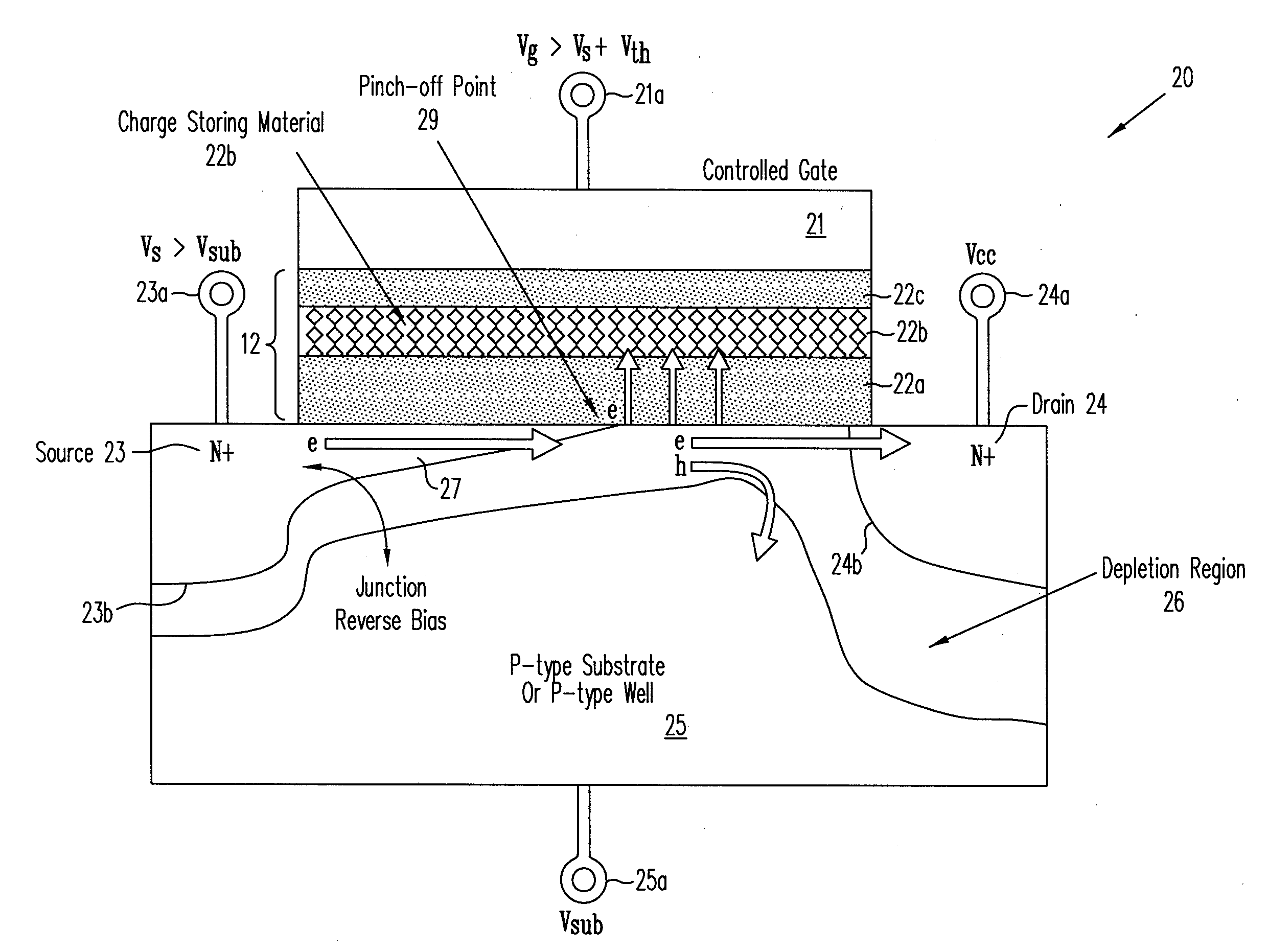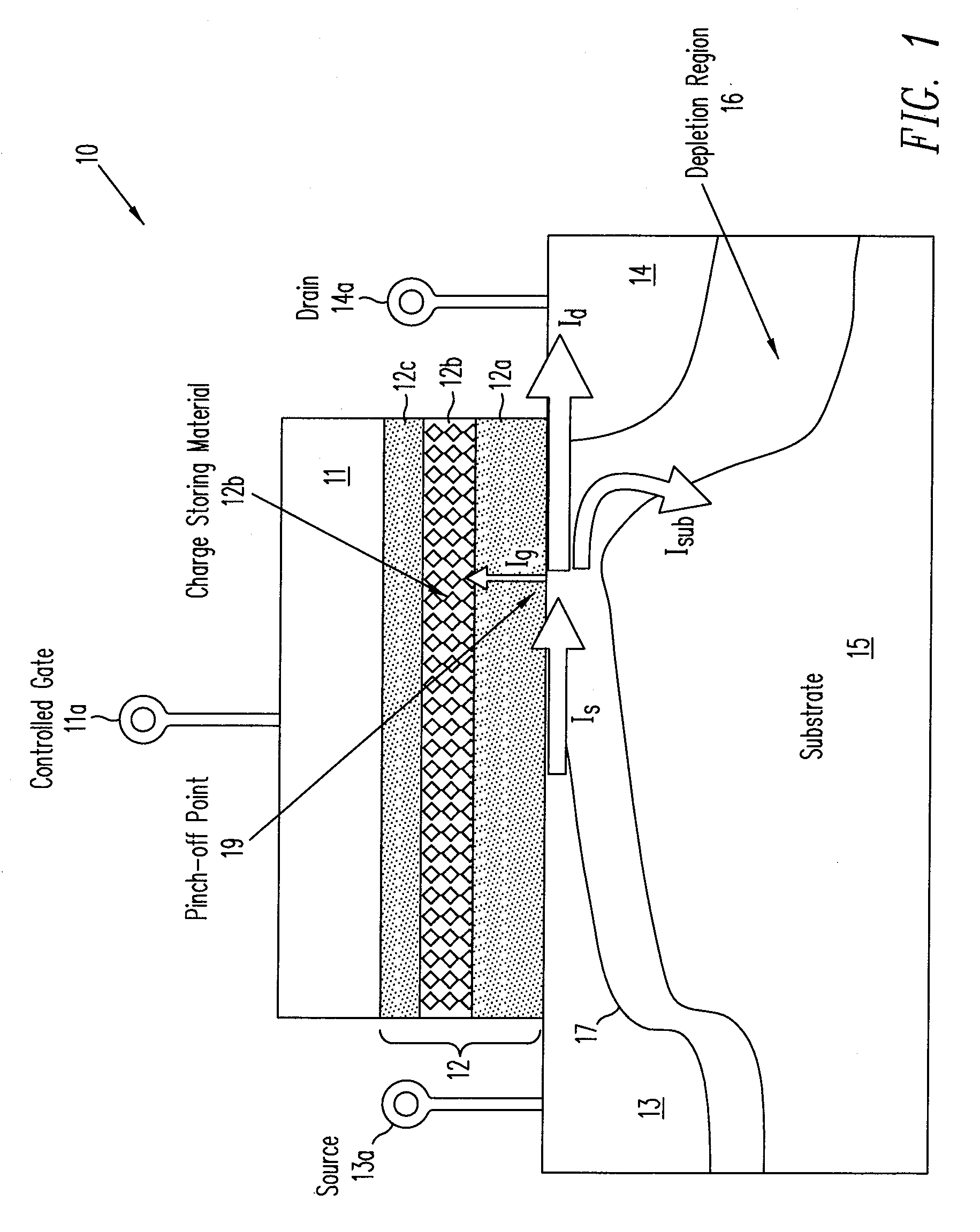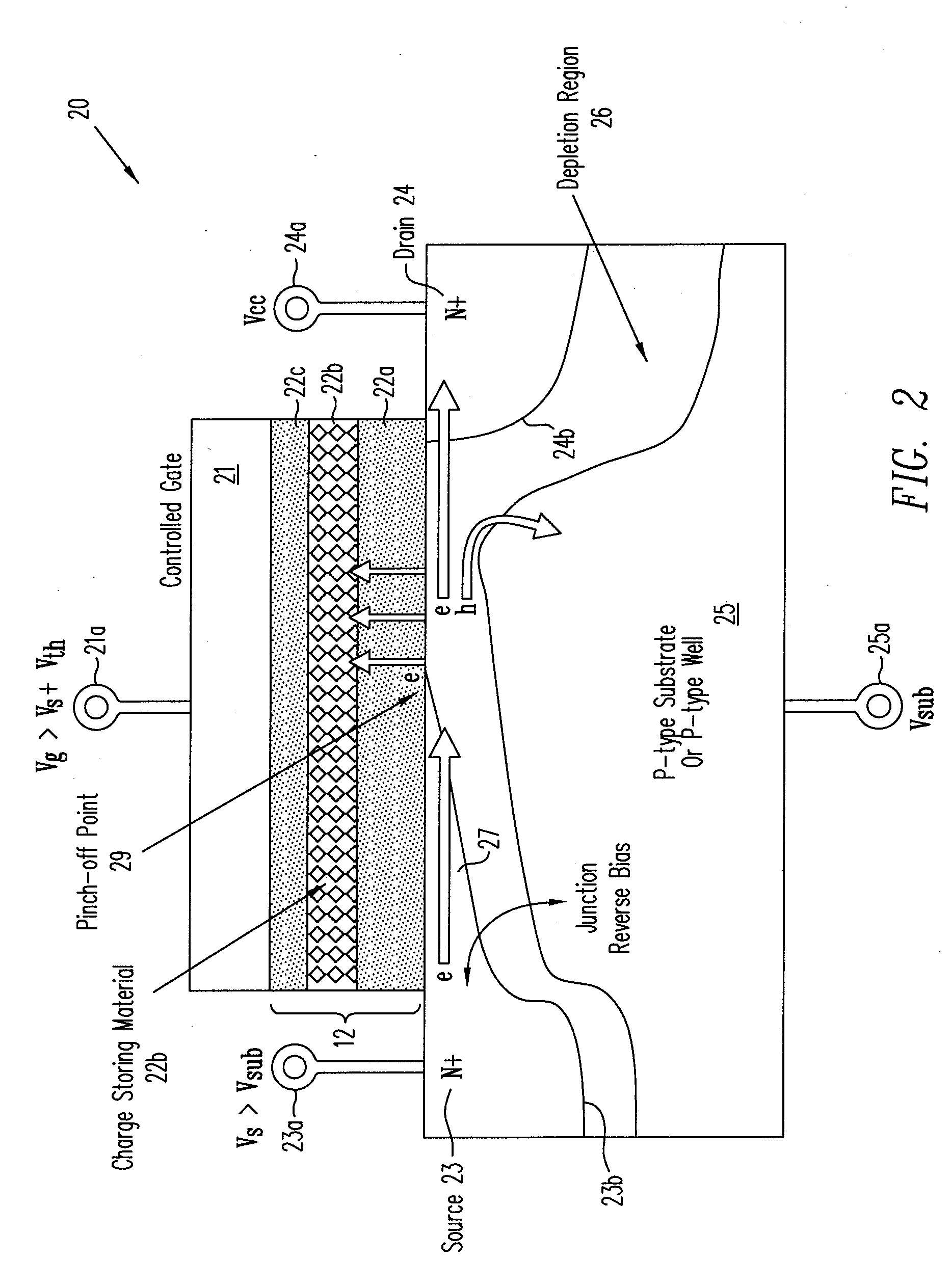Methods and structures for highly efficient hot carrier injection programming for non-volatile memories
a non-volatile memory, high-efficiency technology, applied in the direction of digital storage, instruments, semiconductor devices, etc., can solve the problems of low programming efficiency, difficult charge pump circuit design, and inability to meet the requirements of the charge pump, so as to improve the programming efficiency, and reduce the current of the devi
- Summary
- Abstract
- Description
- Claims
- Application Information
AI Technical Summary
Benefits of technology
Problems solved by technology
Method used
Image
Examples
Embodiment Construction
[0016]The present invention includes methods and structures to optimize the Hot Carrier Injection programming for NVM cells. Those of ordinary skill in the art will immediately realize that the embodiments of the present invention described herein are illustrative only and are not intended to be in any way limiting. Other embodiments of the present invention will readily suggest themselves to such skilled persons having the benefits of this disclosure.
[0017]In one aspect of this invention, an N-type Non-Volatile Memory (NVM) device 20 as shown in FIG. 2 includes N-type source 23 and drain 24 regions in a P-type substrate 25. The control gate 21 is on top of but separated from the substrate 25 by thin dielectrics 22a and 22c and storing material 22b embedded in the thin dielectric 12. By applying a positive voltage to control gate 21, an N-type channel region is formed between source 23 and drain 24 in the top surface of substrate 25. During the HCI programming, the drain electrode 2...
PUM
 Login to View More
Login to View More Abstract
Description
Claims
Application Information
 Login to View More
Login to View More - R&D
- Intellectual Property
- Life Sciences
- Materials
- Tech Scout
- Unparalleled Data Quality
- Higher Quality Content
- 60% Fewer Hallucinations
Browse by: Latest US Patents, China's latest patents, Technical Efficacy Thesaurus, Application Domain, Technology Topic, Popular Technical Reports.
© 2025 PatSnap. All rights reserved.Legal|Privacy policy|Modern Slavery Act Transparency Statement|Sitemap|About US| Contact US: help@patsnap.com



